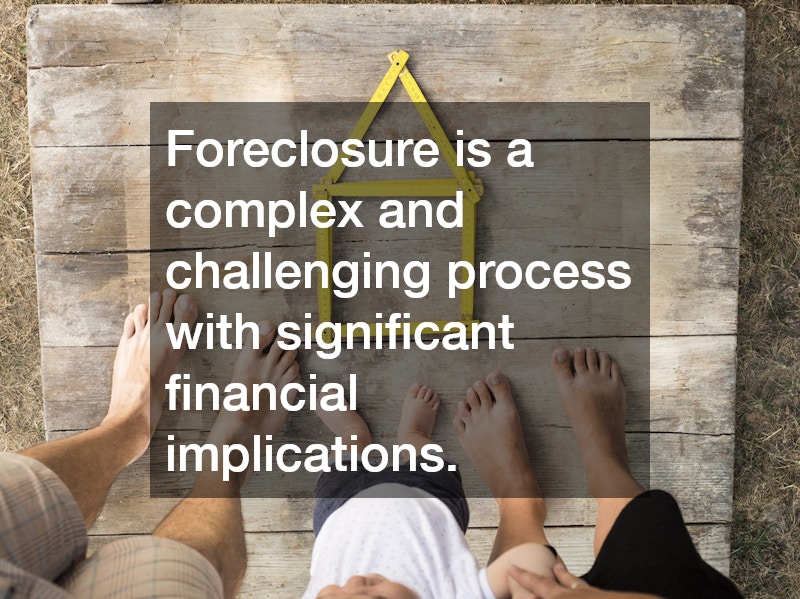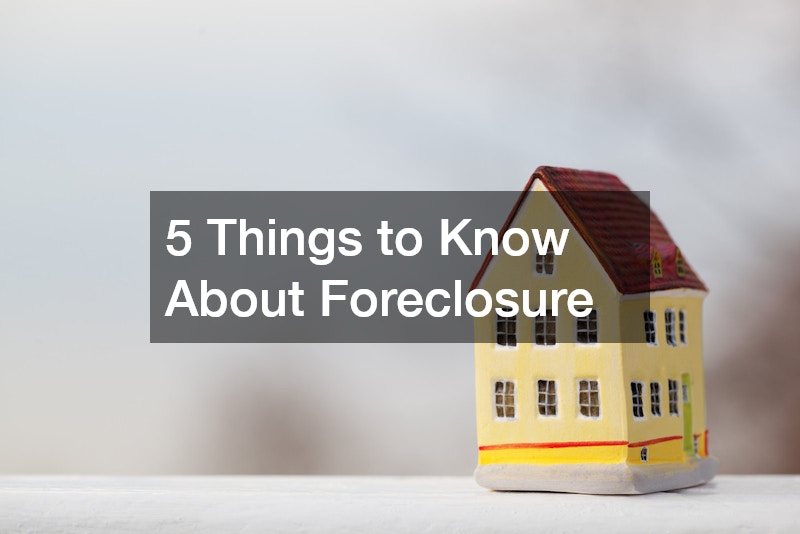
Foreclosure is a daunting process that can have lasting financial and emotional consequences for homeowners. For those facing financial hardships, understanding foreclosure and the available options can be crucial in making informed decisions. This article explores the top questions people ask about foreclosure, providing essential insights and guidance.
What is Foreclosure?
Definition and Process
Foreclosure is the legal process through which a lender seizes and sells a property after the homeowner fails to meet their mortgage obligations. The process generally begins with missed mortgage payments, followed by a notice of default from the lender. If the homeowner does not rectify the situation, the property is eventually put up for auction or taken over by the lender.
Types of Foreclosure
There are two main types of foreclosure:
- Judicial Foreclosure: This involves a court proceeding where the lender must file a lawsuit to obtain a foreclosure order. It typically takes longer due to legal processes and offers homeowners opportunities to contest the foreclosure.
- Non-Judicial Foreclosure: This type occurs without court involvement and follows a predetermined process outlined in the mortgage agreement. It is typically faster than judicial foreclosure but provides fewer opportunities for homeowners to challenge the process.
Legal Aspects
Foreclosure laws vary by state, but homeowners generally have certain rights, including:
- Right to Reinstate: Some states allow homeowners to pay off overdue amounts before the foreclosure is finalized.
- Right of Redemption: In some cases, homeowners can reclaim their property by paying the full mortgage balance after the foreclosure sale.
- Notice Requirements: Lenders must notify homeowners of impending foreclosure, ensuring transparency in the process.
How Does Foreclosure Affect Credit?
Immediate Impact
Foreclosure significantly damages a homeowner’s credit score. It can lower a score by 100 to 300 points, making it harder to obtain loans, credit cards, or favorable interest rates in the future.
Long-term Consequences
A foreclosure remains on a credit report for up to seven years. This affects the ability to secure future mortgages, rent properties, or obtain certain jobs that require financial responsibility.
Rebuilding Credit
While foreclosure negatively impacts credit, recovery is possible through:
- Timely Bill Payments: Consistently paying bills on time improves credit over time.
- Secured Credit Cards: Using a secured credit card responsibly helps rebuild credit.
- Credit Monitoring: Regularly checking credit reports ensures accuracy and identifies areas for improvement.
What are the Alternatives to Foreclosure?
Loan Modification
A loan modification involves changing the terms of a mortgage to make payments more manageable. This can include reducing the interest rate, extending the loan term, or lowering the monthly payment.
Short Sale
A short sale allows homeowners to sell their property for less than the amount owed on the mortgage, with the lender agreeing to accept the reduced amount. While it still impacts credit, it is less damaging than foreclosure.
Deed in Lieu of Foreclosure
With a deed in lieu of foreclosure, the homeowner voluntarily transfers ownership of the property to the lender in exchange for debt forgiveness. This option avoids foreclosure but still affects credit scores.
Can You Buy a Foreclosed Home?
Understanding the Market
The foreclosure market offers opportunities for buyers to purchase homes at lower prices. However, these properties are often sold “as-is,” requiring thorough research and inspections.
Pros and Cons of Buying Foreclosures
Pros:
- Lower purchase prices
- Potential investment opportunities
- Less competition compared to traditional home sales
Cons:
- Properties may require extensive repairs
- Lengthy purchase processes due to legal complexities
- Possible eviction of current occupants
Steps to Purchase a Foreclosed Home
- Research Listings: Use online foreclosure databases, real estate agents, or bank listings to find properties.
- Secure Financing: Obtain pre-approval for a mortgage or have cash ready.
- Inspect the Property: Conduct thorough inspections to assess potential repairs and hidden costs.
- Make an Offer: Submit an offer based on the home’s condition and market value.
- Close the Deal: Finalize the purchase through legal and financial channels.
What is the Foreclosure Timeline?
Pre-Foreclosure Period
This stage begins when a homeowner misses mortgage payments. The lender sends notices of default, giving the homeowner a chance to resolve the issue.
Auction Process
If the homeowner does not settle the debt, the property is auctioned to the highest bidder. Buyers must often pay in cash, making it challenging for those relying on financing.
Post-Foreclosure Period
If the property is not sold at auction, the lender takes ownership and lists it as a real estate-owned (REO) property. Homeowners may face eviction if they remain on the property after foreclosure.
Foreclosure is a complex and challenging process with significant financial implications. Understanding foreclosure, its impact on credit, and alternative options can help homeowners make informed decisions. For buyers, purchasing a foreclosed home offers opportunities but comes with potential risks. By being well-informed, both homeowners and buyers can navigate foreclosure-related issues more effectively.





